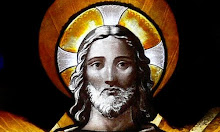 It is a daunting task to tackle any study of God. How does one ever hope to truly master such a study? How does one even begin and particularly when we look back at the quotation from Acts at the end of the last post which in part told us this about God:
It is a daunting task to tackle any study of God. How does one ever hope to truly master such a study? How does one even begin and particularly when we look back at the quotation from Acts at the end of the last post which in part told us this about God:
“God, who made the world and everything in it, is Lord of heaven and earth. … In God we live, move and exist.”
Even more daunting is the prospect that one could study about God and at the end really not feel that they know Him. And beyond that, it is a bit unsettling to contemplate what knowing God may be like and particularly if we focus upon the words written in Hebrews 10:31, “It is a fearful thing to fall into the hands of the living God.”
But not to be deterred, let us remember why we undertake this journey, the imperative of the journey. God, the creator of all that is, reigns as the sovereign of the entire creation and is intimately involved in all that exists within creation. It is therefore of utmost importance for humankind, created in God’s image, to understand that God created all things for His glory. He created us for the singular purpose of a relationship in which He freely gives to us His steadfast and unlimited love and we in turn give to him fully our selves, to love and worship Him in mind, body and spirit. Thus, I think it is no surprise at all that the psalmist wrote these words in verses 12 – 16 of Psalm 119:
“Blessed are you, O Lord; teach me your statutes. With my lips I declare all the ordinances of your mouth. I delight in the way of your decrees as much as in all riches. I will meditate upon your precepts, and fix my eyes on your ways. I will delight in your statutes; I will not forget your word.”
With this knowledge of the essential elements of the relationship between the Creator and the created, Dr. J. I. Packer (in his book, Knowing God) tells us that we can approach the journey guided by five basic truths:
1. God has spoken to man (revealed himself), and the Bible is His Word, given to us to make us wise unto salvation.
2. God is Lord and King over His world; He rules all things for His own glory, displaying His perfections in all that He does, in order that men and angels may worship and adore Him.
3. God is Savior, active in sovereign love through the Lord Jesus, the Christ, to rescue believers from the guilt and power of sin, to adopt them as His children and to bless them accordingly.
4. God is triune; there are within the Godhead three persons, the Father, the Son and the Holy Spirit; and the work of salvation is one in which all three act together, the Father purposing redemption, the Son securing it and the Spirit applying it.
5. Godliness means responding to God’s revelation in trust and obedience, faith and worship, prayer and praise, submission and service. Life must be seen and lived in the light of God’s Word. This, and nothing else, is true religion.
Dr. Packer also observes that the truths just listed are unfamiliar themes for far too many modern Christians; something that he observes was not always true of the people of God (even in the last half of the 20th Century). As an traditional, Anglican evangelical, it is not surprising that he would quote from the Westminster Shorter Catechism to provide a concise definition of God (in human terms): “God is a Spirit, infinite, eternal, and unchangeable, in his being, wisdom, power, holiness, justice, goodness and truth.”
Fortunately for us, one of the truths that Dr. Packer listed about God is that His rule is grounded in love and that love was most perfectly revealed to His creation in the person of God’s Son and our Messiah, Jesus, and it is here that Bishop Rueben Job guides us in our search for an understanding of God and His nature in his book, Three Simple Questions. Bishop Job writes that “… in Jesus we have the clearest picture of who God is, what God does, and how God invites us to live as God’s children.” He turns to the first Chapter of St. Paul’s letter to the Colossians who expressed it this way:
“The Son is the image of the invisible God, the one who is first over all creation. Because all things were created by Him [God], both in the heavens and on the earth, the things that are visible and the things that are invisible … Because all the fullness of God was pleased to live in Him [Christ], and is reconciled all things to Himself [God] through Him [Christ] – whether things on earth or in the heavens. He [Christ] brought peace through the blood of His [Christ’s] cross.”
The beauty that Bishop Job points us to as believers in God through Christ is that in the life of Jesus we are shown without any filters and unbounded by our limited imaginations and often preconceived ideas, an otherwise incomprehensible God who is greater than anything that we can think or fully comprehend. As Bishop Job states, “The God Jesus reveals shatters all our little ideas about God and reveals a God who is author and creator of all there is. In Jesus we see a God who reverses the values of our culture and turns upside down our scheme of priorities, leaving us gasping at the sight of such bone-deep love, justice and mercy. In Jesus we see such bold and radical truth that we tremble in awe and then cry out for help as we try to practice the faithful way of living he demonstrated so splendidly.”

So how does Bishop Job articulate the characteristics and the nature of God as revealed through Jesus? A partial listing follows: a God choosing to be the friend of sinners and being just as comfortable with the wealthy as he is with the homeless beggar; a God who refuses to accept the boundaries that culture establishes; a God who is not swayed by popular opinion, loud adulation or noisy rebellion; a God who is not controlled by any ideology, philosophy, concept, force or power; a God who is never under our control but always free of any control and who may act and create as it seems wise and in keeping with His will (and His alone); a God who is always and forever beyond us, completely other than we are, and yet who wants to come and dwell within us; and finally and most importantly, a God of love. Bishop Job points us to the truth revealed about God in 1 John 4:7-8, “Beloved, let us love one another, because love is from God; everyone who loves is born of God and knows God. Whoever does not love does not know God, for God is love.”
To conclude this brief examination of who God is and what He is like, perhaps we might combine Dr. Packer’s concise definition from the Westminster Shorter Catechism with Bishop Job’s vision of Jesus as the true image of God to complete a portrait of God: God is a Spirit, infinite, eternal, and unchangeable, in his being, wisdom, power, holiness, justice, goodness, truth and LOVE.
Having at least a basic appreciation for who God is, I now move to the second question that Bishop Job poses, “Who am I?”. We’ll address that next time.
God’s peace. <><
 It is a daunting task to tackle any study of God. How does one ever hope to truly master such a study? How does one even begin and particularly when we look back at the quotation from Acts at the end of the last post which in part told us this about God:
It is a daunting task to tackle any study of God. How does one ever hope to truly master such a study? How does one even begin and particularly when we look back at the quotation from Acts at the end of the last post which in part told us this about God:











No comments:
Post a Comment